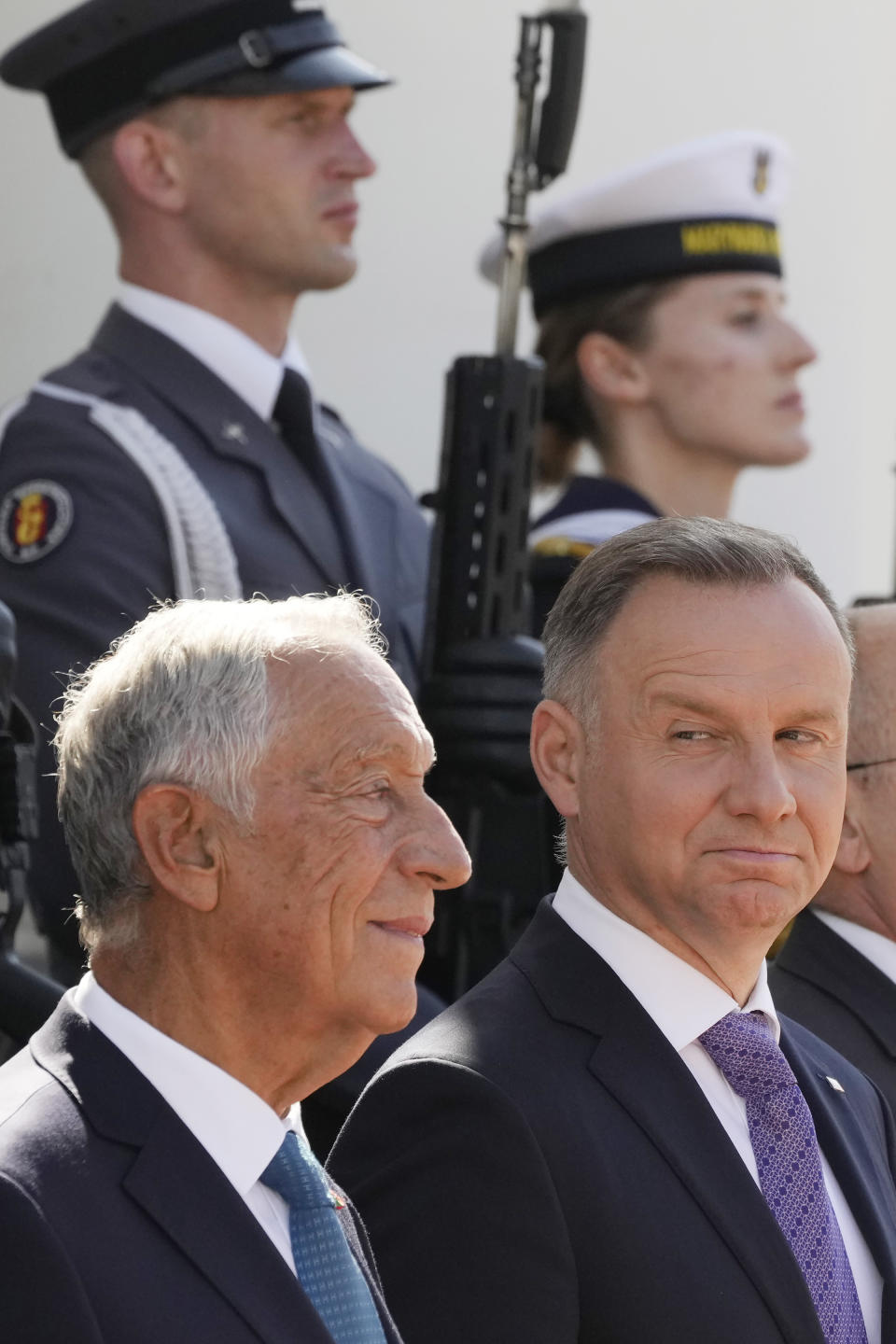Russia Shifting Short-Range Nuclear Weapons to Belarus, Says Polish President
WARSAW, Poland (AP) — Poland’s President Andrzej Duda announced on Tuesday that Russia is in the process of moving some of its short-range nuclear weapons to neighboring Belarus. Duda stated that this move will not only impact the security architecture of the region but also the entire NATO military alliance.
Russian President Vladimir Putin and Belarusian President Alexander Lukashenko had previously confirmed last month that Moscow had already transported some of its tactical nuclear weapons to Belarus, following the announcement of this plan in March. However, the United States and NATO have not yet confirmed this relocation.
NATO Secretary-General Jens Stoltenberg criticized Moscow’s rhetoric as “dangerous and reckless” but mentioned in July that the alliance had not observed any changes in Russia’s nuclear posture.
Tactical nuclear weapons are designed for use on the battlefield and have a limited range and lower yield compared to the more powerful nuclear warheads fitted to long-range missiles. Russia has assured that it will maintain control over the weapons sent to Belarus.
President Duda made these remarks during a joint news conference with Portuguese President Marcelo Rebelo de Sousa.
“I was informing President Sousa about Vladimir Putin’s declarations regarding the relocation of Russia’s tactical nuclear weapons to Belarus,” Duda stated. “Indeed, this process is underway, and we are witnessing it.”
Duda did not provide specific details but emphasized that this move is significantly altering the security architecture in their part of Europe. He added that it is also impacting the security of their immediate neighborhood and the eastern flank of NATO, ultimately affecting the entire alliance.
Lukashenko has claimed that hosting Russian nuclear weapons in Belarus is meant to deter aggression from NATO member Poland, despite Warsaw not making any such threats. Poland has been providing military, humanitarian, and political support to neighboring Ukraine in its struggle against Russia’s invasion and has also participated in international sanctions against Russia and Belarus.
President de Sousa pledged ongoing support for Ukraine’s struggle and for other countries in the region, emphasizing that it is as crucial to Portugal as the situation in their own neighborhood.
“We are united, we stand in solidarity, without any hesitations, and I have duly taken note of the Polish concerns over what may be understood as the need to closely monitor any moves that may question the eastern borders of the European Union or NATO,” de Sousa stated.

How does the relocation of nuclear weapons to Belarus impact the security architecture and balance of power in Europe, and what potential consequences does it have for regional stability?
Rous and irresponsible” and called for transparency and dialogue. He stated that NATO remains vigilant and will take any necessary measures to ensure the security of its member states.
The movement of nuclear weapons to Belarus has raised concerns among NATO member states, particularly Poland, which shares a border with Belarus. President Duda expressed his concern over the potential threats this poses to his country and the wider region.
The relocation of nuclear weapons not only impacts the security architecture of the region but also questions the balance of power and stability in Europe. It undermines trust and heightens tensions between Russia and NATO, adding to the already strained relations between the two sides.
This move by Russia further complicates the already complex security situation in Eastern Europe. It comes at a time when tensions are high due to Russia’s military build-up near Ukraine and ongoing conflicts in the region, such as the ongoing conflict in eastern Ukraine and the annexation of Crimea.
NATO has repeatedly expressed its commitment to ensuring the security of its member states and has increased its military presence in the region. It has conducted military exercises and rotations of troops to demonstrate its readiness and deter any potential aggression.
The relocation of nuclear weapons to Belarus also raises concerns about the potential for their use in a conflict scenario. This could have disastrous consequences for the region and beyond.
In response to these developments, Poland, along with its NATO allies, is expected to closely monitor the situation and consider appropriate measures to ensure its security. This could include increasing its own defense capabilities, enhancing intelligence sharing, and further strengthening its ties with NATO and other regional partners.
Overall, the movement of Russian nuclear weapons to Belarus is a worrying development that undermines the stability and security of the region. The international community, particularly NATO, must remain vigilant and take necessary steps to address this issue and uphold the principles of peace and security in Europe.

This is an alarming development that requires immediate attention and coordination among NATO allies to ensure regional security.
We cannot afford to downplay the significance of this move. It’s crucial that Poland and NATO remain vigilant and take necessary steps to address any potential threat to our collective security.